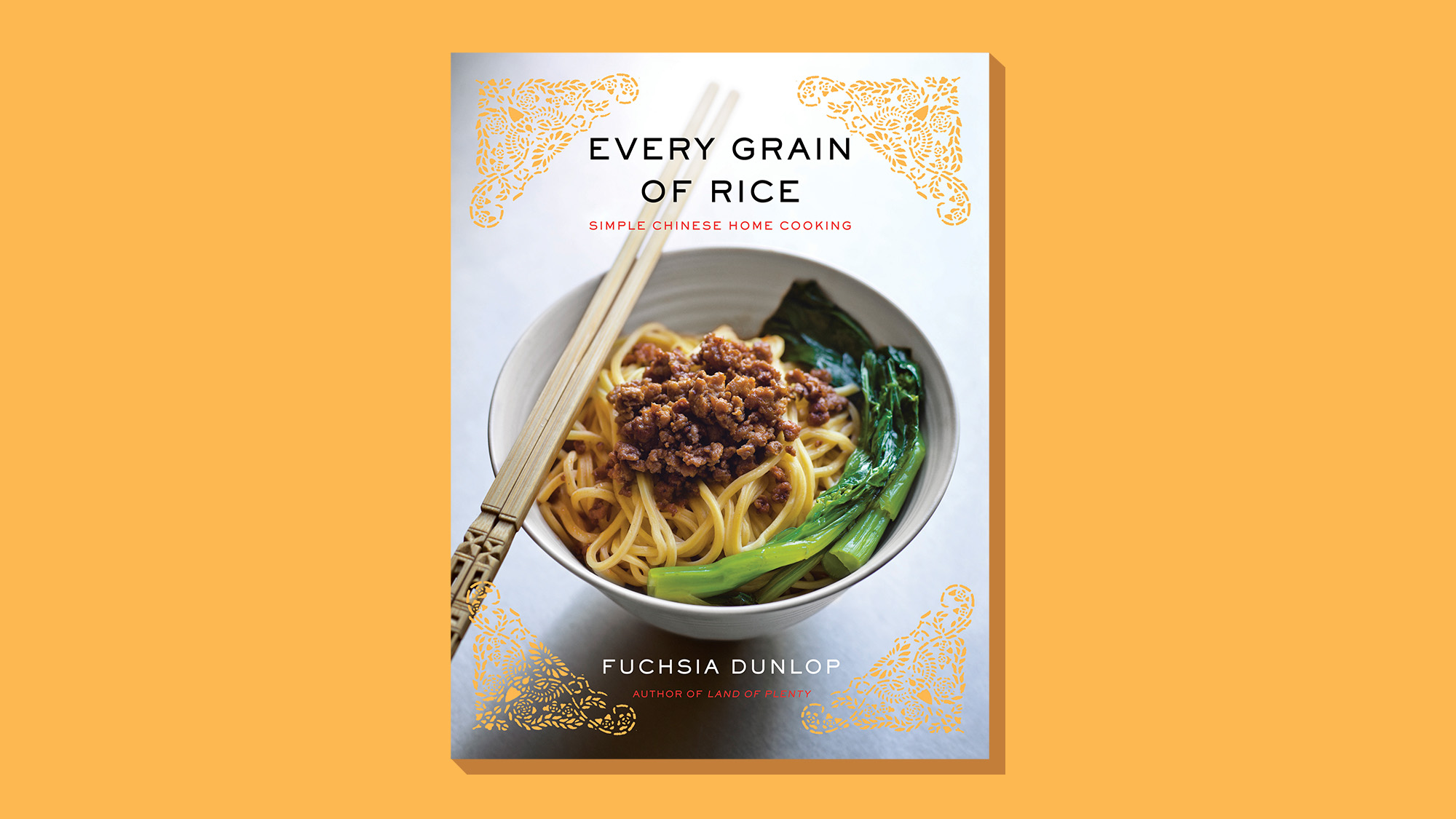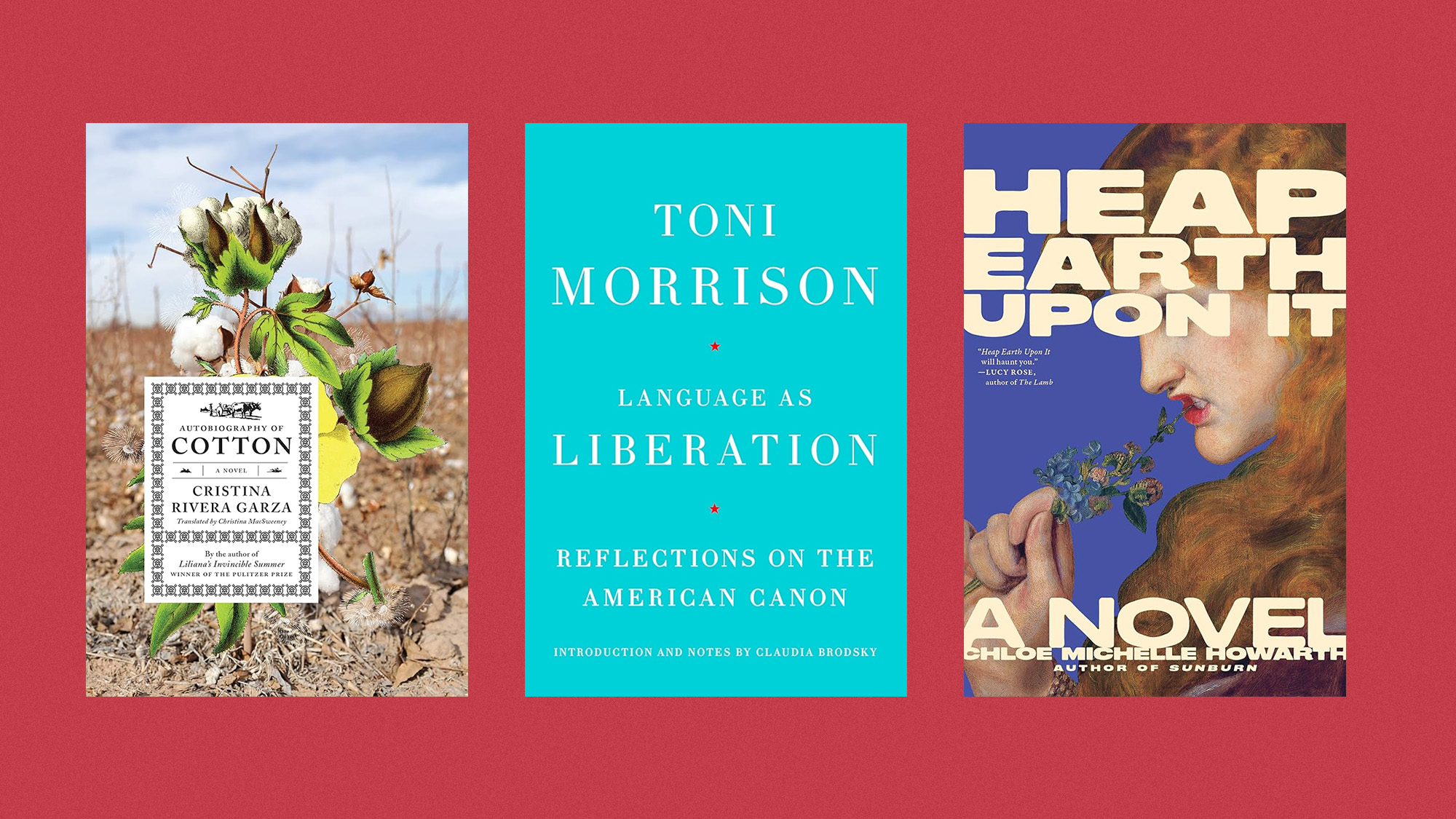One great cookbook: 'Every Grain of Rice' by Fuchsia Dunlop
The alchemy of Chinese home cooking made accessible


A free daily email with the biggest news stories of the day – and the best features from TheWeek.com
You are now subscribed
Your newsletter sign-up was successful
When you make a purchase using links on our site, The Week may earn a commission. All reviews are written independently by our editorial team.
Most cookbooks, at heart, are designed for home cooking. The chasm, though, between a cookbook from a restaurant chef that has been adapted for home use and a book that exploits the spirit, resourcefulness and simplicity with which one feeds oneself and others in a home kitchen is vast.
"Every Grain of Rice," from the British food writer Fuchsia Dunlop, sits implacably on the side of true home cooking. In Dunlop's other books, her memoir, "Shark's Fin and Sichuan Pepper," notwithstanding, she aims to reverse-engineer complex dishes from regional Chinese cuisines like Shanghainese, Sichuan and Hunanese. "Every Grain of Rice" is a gorgeous outlier. No fancy restaurant techniques that require an army of cooks to execute. No assemblage of seven time-consuming components in these dishes. Instead, the book's recipes replicate how some Chinese people cook at home, in various parts of the enormous, diverse country.
The Week
Escape your echo chamber. Get the facts behind the news, plus analysis from multiple perspectives.

Sign up for The Week's Free Newsletters
From our morning news briefing to a weekly Good News Newsletter, get the best of The Week delivered directly to your inbox.
From our morning news briefing to a weekly Good News Newsletter, get the best of The Week delivered directly to your inbox.
Stocking for the future
The home cooking that requires the least effort is home cooking that foregrounds a strong pantry. In the case of the Chinese home cooking Dunlop celebrates, that means a pantry full of store-bought, shelf-stable items like soy sauce, Sichuan bean paste, Chinese black vinegar and toasted sesame oil.
She never assumes the reader knows these ingredients well — or at all — so the glossary in "Every Grain of Rice" is both wide and deep. Each subsection is accompanied by a full-page photo of the section's ingredients, along with hanzi and roman names. The subsections include, for example, "preserved vegetables," "fermented products sauces and pastes," "rice and flour" (noodles and the like) and even "leafy greens," ensuring you will always know your purple amaranth from your water spinach.
Note: There is zero shame in lugging the book to your local Chinese supermarket, asking a worker for an assist, then pointing at either the hanzi characters or the photos of the items you seek. Because Laoganma black bean sauce is very much not the same as sweet fermented sauce, just as Chinese pickled mustard greens (suan cai) are not a twin of snow vegetable (xue cai). This is shopping as enabling.
Recipes that work — and work, and work
Of all the cookbooks I own, there are a mere few I have cooked from. Then there is the smaller pool from which I have cooked more than one recipe, more than once. Finally there are the handful of books that I have cooked many recipes from. Typically when I cook a book's recipe, I will note the date above the recipe and give the recipe a rating from 1 to 10, with 10 being stellar. My copy of "Every Grain of Rice" is riddled with these annotations. And the majority of the book's recipes have a 9 or 10 next to them. Such is the delicious reliability of this cookbook.
A free daily email with the biggest news stories of the day – and the best features from TheWeek.com
The "Cold Dishes" chapter is an affable revelation. Radishes are smacked, then salted for half an hour. After they are drained of any liquid they have extruded, the spunky red orblets are dressed with chile oil, soy sauce and toasted sesame oil. A bag of frozen shelled edamame becomes a lively salad with the addition of tangy, crunchy Sichuan-preserved vegetable (zha cai) and sesame oil. So much flavor; so little effort.
Some of the stir-fries necessitate a mere four ingredients, as with the pressed tofu with planks of green bell peppers. Others — like gong pao chicken, aka kung pao chicken — have a robust list of ingredients. Yet every recipe feels equally manageable because each is simply a variation on a ripping-fire, wok-centric assembly line.
A parade of noodle dishes; greens and mushrooms; tofu from breakfast to late-night snack; spicy wontons that warm and startle. Every recipe in "Every Grain of Rice" is a Golden Retriever: comforting, frisky and, once you become acquainted, loyal like none other.
Scott Hocker is an award-winning freelance writer and editor at The Week Digital. He has written food, travel, culture and lifestyle stories for local, national and international publications for more than 20 years. Scott also has more than 15 years of experience creating, implementing and managing content initiatives while working across departments to grow companies. His most recent editorial post was as editor-in-chief of Liquor.com. Previously, he was the editor-in-chief of Tasting Table and a senior editor at San Francisco magazine.
-
 Nuuk becomes ground zero for Greenland’s diplomatic straits
Nuuk becomes ground zero for Greenland’s diplomatic straitsIN THE SPOTLIGHT A flurry of new consular activity in the remote Danish protectorate shows how important Greenland has become to Europeans’ anxiety about American imperialism
-
 ‘This is something that happens all too often’
‘This is something that happens all too often’Instant Opinion Opinion, comment and editorials of the day
-
 House votes to end Trump’s Canada tariffs
House votes to end Trump’s Canada tariffsSpeed Read Six Republicans joined with Democrats to repeal the president’s tariffs
-
 The 8 best superhero movies of all time
The 8 best superhero movies of all timethe week recommends A genre that now dominates studio filmmaking once struggled to get anyone to take it seriously
-
 Book reviews: ‘Hated by All the Right People: Tucker Carlson and the Unraveling of the Conservative Mind’ and ‘Football’
Book reviews: ‘Hated by All the Right People: Tucker Carlson and the Unraveling of the Conservative Mind’ and ‘Football’Feature A right-wing pundit’s transformations and a closer look at one of America’s favorite sports
-
 One great cookbook: Joshua McFadden’s ‘Six Seasons of Pasta’
One great cookbook: Joshua McFadden’s ‘Six Seasons of Pasta’the week recommends The pasta you know and love. But ever so much better.
-
 How to navigate dating apps to find ‘the one’
How to navigate dating apps to find ‘the one’The Week Recommends Put an end to endless swiping and make real romantic connections
-
 February TV brings the debut of an adult animated series, the latest batch of ‘Bridgerton’ and the return of an aughts sitcom
February TV brings the debut of an adult animated series, the latest batch of ‘Bridgerton’ and the return of an aughts sitcomthe week recommends An animated lawyers show, a post-apocalyptic family reunion and a revival of a hospital comedy classic
-
 Caribbean resorts that call for serious rest and relaxation
Caribbean resorts that call for serious rest and relaxationThe Week Recommends Serenity is a flight away
-
 February’s books feature new Toni Morrison, a sapphic love tale and a criticism of Mexican history
February’s books feature new Toni Morrison, a sapphic love tale and a criticism of Mexican historyThe Week Recommends This month’s new releases include ‘Autobiography of Cotton’ by Cristina Rivera Garza, ‘Language as Liberation’ by Toni Morrison and ‘Heap Earth Upon It’ by Chloe Michelle Howarth
-
 Spoil those special someones with these charming Valentine’s Day gifts
Spoil those special someones with these charming Valentine’s Day giftsThe Week Recommends Make them ooh and aah
